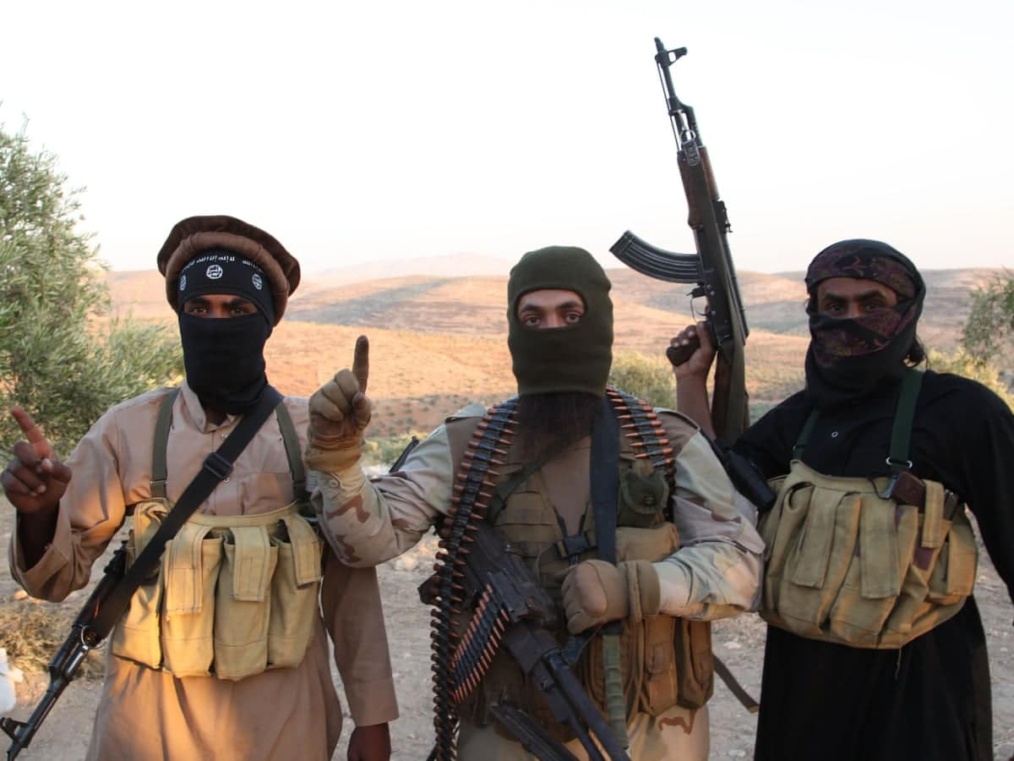
ISIS-K Grows as the Taliban Struggles to Maintain Power
According to a senior Afghan intelligence officer who spoke with Rise to Peace, ISIS of Khorasan (ISIS-K) is growing rapidly in the Char Bolak district of the Balkh province in Afghanistan, notably since the Taliban’s takeover. Recently, ISIS has claimed responsibility for two other attacks, one occurring outside of a women’s hospital in Liverpool, U.K., killing only the ISIS member himself. The second attack occurred in Kampala, Uganda, killing three people and injuring 36. These attacks illustrate the rapid expansion of ISIS’s growth and activities.
Additionally, ISIS-K’s attacks have been characterized by violent expansion and retrenchment combined with periodic clashes with the Taliban, international forces, and Afghan security forces.
ISIS-K has been responsible for nearly 100 attacks against civilians in both Pakistan and Afghanistan, as well as around 250 clashes with U.S., Afghan, and Pakistani security forces since 2017.
A senior Afghan intelligence officer informed Rise to Peace that ISIS-K is getting stronger due to a concentrated focus on increasing capabilities and power after the recent Taliban takeover. There are no current counter-terrorism operations; however, the previous Afghan government used to have many counter-terrorism resources and operations, such as drone attacks. In addition, due to the Taliban takeover, there is no significant resistance against ISIS-K, leaving them with plenty of room to grow rapidly.
Furthermore, poverty is rampantly increasing in Afghanistan. So, not only does this make people more willing to join a terrorist organization, but also results in former Afghan security forces joining as a means to financially support their families. For example, an Afghan intelligence officer informed Rise to Peace that ISIS-K will pay 15,000 AFG to new recruits with no experience and 25,000 AFG for those with experience. Likewise, many top-level ISIS-K commanders who were captured during the previous five to six years were released after the Taliban takeover.
ISIS-K/Daesh Techniques
ISIS-K’s techniques are known to be chaotic and devastating. ISIS-K strategically creates chaos and uncertainty through guerilla tactics in an attempt to discredit a government’s ability to provide security for its citizens. Additionally, through these tactics, ISIS-K seeks to shift fighters from other groups into their own. Through these efforts, ISIS-K aims to position itself as the leading jihadist organization in the region by recruiting new members, and poaching members affiliated with other groups.
Moreover, ISIS-K engages in various tactics to incentivize recruits, varying from marriage arrangements to threats. One example includes sending out nightly letters to recruit people to join their cause. They have even sent letters to Taliban soldiers, warning them to leave the Islamic Emirate or ISIS-K will assassinate them.
According to a senior Afghan intelligence officer who spoke with Rise to Peace, a new group within ISIS-K operates at night to kill members of the Taliban. The unique aspect about this group is not only do they live seemingly normal lives, fighting at night while continuing to be farmers during the day, but they conduct their operations barefoot. Thus, they have become known as the “barefoot fighters” among locals. The “barefoot fighters'” tactics are comparable to those that the Mujahideen used during their existence, since the Mujahideen were referred to as “guerrillas” or “mountain men” and were similarly excellent in night combat.
Who are the targets?
Ever since ISIS-K’s founding, it has usually targeted Kabul with sophisticated and complex attacks. In the majority of the attacks, ISIS-K has a high proclivity to target civilians whom they regard as infidels of Islam.
Capabilities
Most analysts and researchers, including the United Nations, gauge that ISIS-K’s capabilities have reached about 2,000 fighters, and increased when the Taliban released prisoners from the Afghanistan jail. This amount is somewhat comparable to the Taliban who have around 10,000 fighters at their disposal.
Financial Routes
It is not exactly evident where ISIS-K receives its funding, but the public U.S. government assessments provide the clearest understanding. ISIS-K primarily receives funds by extorting the local population and businesses, taxation, illicit criminal commerce, donations, as well as support from the ISIS-core.
ISIS-K moves its money around the world and throughout Afghanistan via the Hawala. The Hawala is an alternative or parallel transfer system which exists outside of traditional finance channels. Hence, it has been used widely in funding terrorist groups and activities both in Afghanistan and abroad. Further, ISIS-K has cultivated relationships with specific Hawala dealers who store thousands of dollars for them.
The response from the international community
The international community has taken several steps to combat ISIS-K. For example, the UN Security Council established an arms embargo, travel ban, and asset freeze in 2019 against ISIS-K by all UN member states. Additionally, the US government has implemented strategies such as economic sanctions and counter-terrorism efforts to inhibit ISIS-K’s operational and financial capabilities. However, since the Taliban takeover, it has become increasingly difficult for the international community to combat ISIS-K and terrorism financing in general.
Looking forward
With both financial and membership increases, ISIS-K is growing extensively, especially after the recent Taliban takeover. Not only are their attacks violent and chaotic, but they also target civilians to convey their message of jihad.
In order to face the challenges posed by both ISIS-K and terrorism in Afghanistan, the international community needs to strengthen its coordination on impeding terrorism financing in Afghanistan. In addition, concrete steps must be identified and articulated for the Taliban to take against ISIS-K’s financing practices. Ultimately, until the international community is able to create a tangible strategy, ISIS-K will continue to grow in size and power.
Krista Tammila, Counter-Terrorism Research Fellow at Rise to Peace
Ahmad Shah Mohibi, Founder of Rise to Peace



